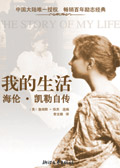wild wales-第125部分
按键盘上方向键 ← 或 → 可快速上下翻页,按键盘上的 Enter 键可回到本书目录页,按键盘上方向键 ↑ 可回到本页顶部!
————未阅读完?加入书签已便下次继续阅读!
hour; then paying my groat I got up and set off for Newport; in the
midst of a thick mist which had suddenly come on; and which
speedily wetted me nearly to the skin。
I reached Newport at about half…past four; and put up at a large
and handsome inn called the King's Head。 During dinner the waiter;
unasked; related to me his history。 He was a short thick fellow of
about forty; with a very disturbed and frightened expression of
countenance。 He said that he was a native of Brummagen; and had
lived very happily at an inn there as waiter; but at length had
allowed himself to be spirited away to an establishment high up in
Wales amidst the scenery。 That very few visitors came to the
establishment; which was in a place so awfully lonesome that he
soon became hipped; and was more than once half in a mind to fling
himself into a river which ran before the door and moaned dismally。
That at last he thought his best plan would be to decamp; and
accordingly took French leave early one morning。 That after many
frights and much fatigue he had found himself at Newport; and taken
service at the King's Head; but did not feel comfortable; and was
frequently visited at night by dreadful dreams。 That he should
take the first opportunity of getting to Brummagen; though he was
afraid that he should not be able to get into his former place;
owing to his ungrateful behaviour。 He then uttered a rather
eloquent eulogium on the beauties of the black capital; and wound
up all by saying that he would rather be a brazier's dog at
Brummagen than head waiter at the best establishment in Wales。
After dinner I took up a newspaper and found in it an account of
the battle of Inkerman; which appeared to have been fought on the
fifth of November; the very day on which I had ascended Plynlimmon。
I was sorry to find that my countrymen had suffered dreadfully; and
would have been utterly destroyed but for the opportune arrival of
the French。 〃In my childhood;〃 said I; 〃the Russians used to help
us against the French; now the French help us against the Russians。
Who knows but before I die I may see the Russians helping the
French against us?〃
CHAPTER CVIII
Town of Newport … The Usk … Note of Recognition … An Old
Acquaintance … Connamara Quean … The Wake … The Wild Irish … The
Tramping Life … Business and Prayer … Methodists … Good Counsel。
NEWPORT is a large town in Monmouthshire; and had once walls and a
castle。 It is called in Welsh Cas Newydd ar Wysg; or the New
Castle upon the Usk。 It stands some miles below Caerlleon ar Wysg;
and was probably built when that place; at one time one of the most
considerable towns in Britain; began to fall into decay。 The Wysg
or Usk has its source among some wild hills in the south…west of
Breconshire; and; after absorbing several smaller streams; amongst
which is the Hondu; at the mouth of which Brecon stands; which on
that account is called in Welsh Aber Hondu; and traversing the
whole of Monmouthshire; enters the Bristol Channel near Newport; to
which place vessels of considerable burden can ascend。 Wysg or Usk
is an ancient British word; signifying water; and is the same as
the Irish word uisge or whiskey; for whiskey; though generally
serving to denote a spirituous liquor; in great vogue amongst the
Irish; means simply water。 The proper term for the spirit is
uisquebaugh; literally acqua vitae; but the compound being
abbreviated by the English; who have always been notorious for
their habit of clipping words; one of the strongest of spirits is
now generally denominated by a word which is properly expressive of
the simple element water。
Monmouthshire is at present considered an English county; though
certainly with little reason; for it not only stands on the western
side of the Wye; but the names of almost all its parishes are
Welsh; and many thousands of its population still speak the Welsh
language。 It is called in Welsh Sir; or Shire; Fynwy; and takes
its name from the town Mynwy or Monmouth; which receives its own
appellation from the river Mynwy or Minno; on which it stands。
There is a river of much the same name; not in Macedon but in the
Peninsula; namely the Minho; which probably got its denomination
from that race cognate to the Cumry; the Gael; who were the first
colonisers of the Peninsula; and whose generic name yet stares us
in the face and salutes our ears in the words Galicia and Portugal。
I left Newport at about ten o'clock on the 16th; the roads were
very wet; there having been a deluge of rain during the night。 The
morning was a regular November one; dull and gloomy。 Desirous of
knowing whereabouts in these parts the Welsh language ceased; I
interrogated several people whom I met。 First spoke to Esther
Williams。 She told me she came from Pennow; some miles farther on;
that she could speak Welsh; and that indeed all the people could
for at least eight miles to the east of Newport。 This latter
assertion of hers was; however; anything but corroborated by a
young woman; with a pitcher on her head; whom I shortly afterwards
met; for she informed me that she could speak no Welsh; and that
for one who could speak it; from where I was to the place where it
ceased altogether; there were ten who could not。 I believe the
real fact is that about half the people for seven or eight miles to
the east of Newport speak Welsh; more or less; as about half those
whom I met and addressed in Welsh; answered me in that tongue。
Passed through Pennow or Penhow; a small village。 The scenery in
the neighbourhood of this place is highly interesting。 To the
north…west at some distance is Mynydd Turvey; a sharp pointed blue
mountain。 To the south…east; on the right; much nearer; are two
beautiful green hills; the lowest prettily wooded; and having its
top a fair white mansion called Penhow Castle; which belongs to a
family of the name of Cave。 Thence to Llanvaches; a pretty little
village。 When I was about the middle of this place I heard an odd
sound; something like a note of recognition; which attracted my
attention to an object very near to me; from which it seemed to
proceed; and which was coming from the direction in which I was
going。 It was the figure seemingly of a female; wrapped in a
coarse blue cloak; the feet bare and the legs bare also nearly up
to the knee; both terribly splashed with the slush of the road。
The head was surmounted by a kind of hood; which just permitted me
to see coarse red hair; a broad face; grey eyes; a snubbed nose;
blubber lips and great white teeth … the eyes were staring intently
at me。 I stopped and stared too; and at last thought I recognised
the features of the uncouth girl I had seen on the green near
Chester with the Irish tinker Tourlough and his wife。
〃Dear me!〃 said I; 〃did I not see you near Chester last summer?〃
〃To be sure ye did; and ye were going to pass me without a word of
notice or kindness had I not given ye a bit of a hail。〃
〃Well;〃 said I; 〃I beg your pardon。 How is it all wid ye?〃
〃Quite well。 How is it wid yere hanner?'
〃Tolerably。 Where do you come from?〃
〃From Chepstow; yere hanner。〃
〃And where are you going to?〃
〃To Newport; yere hanner。〃
〃And I come from Newport; and am going to Chepstow。 Where's
Tourlough and his wife?〃
〃At Cardiff; yere hanner; I shall join them again to…morrow。〃
〃Have you been long away from them?〃
〃About a week; yere hanner。〃
〃And what have you been doing?〃
〃Selling my needles; yere hanner。〃
〃Oh! you sell needles。 Well; I am glad to have met you。 Let me
see。 There's a nice little inn on the right: won't you come in
and have some refreshment?〃
〃Thank yere hanner; I have no objection to take a glass wid an old
friend。〃
〃Well; then; come in; you must be tired; and I shall be glad to
have some conversation with you。〃
We went into the inn … a little tidy place。 On my calling; a
respectable…looking old man made his appearance behind a bar。
After serving my companion with a glass of peppermint; which she
said she preferred to anything else; and me with a glass of ale;
both of which I paid for; he retired; and we sat down on two old
chairs beneath a window in front of the bar。
〃Well;〃 said I; 〃I suppose you have Irish: here's slainte … 〃
〃Slainte yuit a shaoi;〃 said the girl; tasting her peppermint。
〃Well: how do you like it?'
〃It's very nice indeed。〃
〃That's more than I can say of the ale; which; like all the ale in
these parts; is bitter。 Well; what part of Ireland do you come
from?〃
〃From no part at all。 I never was in Ireland in my life。 I am
from Scotland Road; Manchester。〃
〃Why; I thought you were Irish?〃
〃And so I am; and all the more from being born where I was。
There's not such a place for Irish in all the world as Scotland
Road。〃
〃Were your father and mother from Ireland?〃
〃My mother was from Ireland: my father was Irish of Scotland Road;
where they met and married。〃
〃And what did they do after they married?〃
〃Why; they worked hard; and did their best to get a livelihood for
themselves and children; of which they had several besides myself;
who was the eldest。 My father was a bricklayer; and my mother sold
apples and oranges and other fruits; according to the season; and
also whiskey; which she made herself; as she well knew how; for my
mother was not only a Connacht woman; but an out…and…out Connamara
quean; and when only thirteen had wrought with the lads who used to
make the raal cratur on the islands between Ochterard and Bally na
hinch。 As soon as I was able; I helped my mother in making and
disposing of the whiskey and in selling the fruit。 As for the
other children; they all died when young; of favers; of which there
is always plenty in Scotland Road。 About four years ago … that is;
when I was just fifteen … there was a great quarrel among the
workmen about wages。 Some wanted more than their masters were
willing to give; others were willing to take what was offered them。
Those who were dissatisfied were called bricks; those who were no
![[网王同人]colorless wind封面](http://www.baxi2.com/cover/noimg.jpg)



